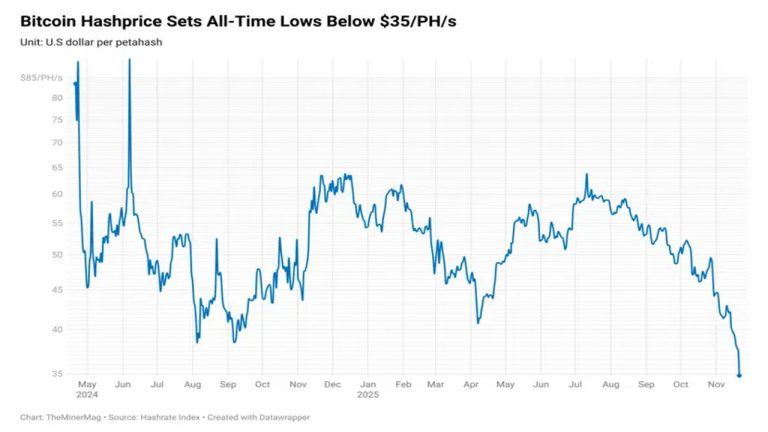What happened in crypto this weekend?
4 min read

Ethereum’s Holesky testnet fails launch
Ethereum developers have been forced to regroup after failing to launch a new test network, Holesky, on Sept. 16.
The testnet attempted to launch with about 1.5 million validators but failed due to a misconfiguration in the source code, according to Ethereum infrastructure firm Nethermind in a Sept. 16 post.
Ethereum Foundation engineer Parithosh Jayanthi shed more light on the matter, explaining that while some validators manually fixed the configuration issue — enabling Holesky testnet to start —there weren’t enough active validators for the network to reach finality.
Nethermind said Ethereum Foundation’s developers agreed to try again a week from the time of the post — presumably around Sept. 23.
We had a misconfiguration in the el genesis file and that led to the holesky network improperly launching. Some validators manually fixed the config and were able to start the chain, but not enough for the network to finalize. https://t.co/5fchlRBCP3
— parithosh | (@parithosh_j) September 15, 2023
Jayanthi said it’s “extremely likely” the network will properly launch within the next two weeks once the technical issue is resolved.
He apologized for the failed launch and said the team will ensure the same problem is prevented in the future:
“Sorry for the chaos! We’ll add some more validation steps and better docs to try and make sure this doesn’t happen again.”
Holesky is designed to facilitate staking, infrastructure, and protocol development on the Ethereum network. It’s replacing the Goerli testnet after developers began complaining that Goerli had too low of a supply of Goerli ETH to adequately handle testing needs.
Anthony Sassano, host of Ethereum show The Daily Gwei previously said the launch would be the largest public testnet in Ethereum history.
CoinEx writes plea to hackers in bizarre open letter
Crypto exchange CoinEx has published an open letter pleading for the hackers behind the recent $70 million heist to come forward and talk about the potential return of funds — adding a rather strange call to action.
“We sincerely invite you to work with us to resolve this issue in a securer, more reasonable, and more user-friendly manner. We encourage you to communicate and negotiate with us actively on the blockchain or through our official email address,” the firm wrote.
As hacked firms usually do, CoinEx said they were willing to offer the hackers a “generous” bug bounty as a reward for returning the stolen funds.
#CoinExResponseUpdate – CoinEx’s Open Letter to Hackers
To Hackers,
We entered this industry with a vision of “making the world a better place via blockchain.” Like millions of blockchain enthusiasts who share the same faith, we strive to build an open, interconnected, and…
— CoinEx Global (@coinexcom) September 15, 2023
However, bizarrely, CoinEx applauded the white hat hackers for their “technical expertise” and even invited them to discuss how CoinEx can upgrade its security system.
“If possible, we sincerely invite you to discuss the future upgrade of CoinEx’s security system. Together with global blockchain enterprises and practitioners, we will safeguard a free, open, secure, and trustworthy blockchain ecosystem.”
CoinEx’s message to the hackers also included a message more likely intended for its affected users, stating:
“This incident has come as a profound lesson for us and has alerted us to the fact that the security of exchange assets must never be compromised. The affected assets are not just numbers; they represent the trust millions of global users have placed in us,” they said.
On Sept. 12, crypto exchange CoinEx experienced abnormally large outflows to an address with no prior history. Several blockchain security firms have pointed to
He said he was particularly pleased with the efforts of Patrick McHenry, the Chairman of the U.S. House Financial Services committee — presumably in relation to the Digital Asset Market Structure Proposal draft that he co-released on June 2.
“Many of the folks that have been involved in drafting that legislation and those that have voted for it are really hoping to build on that momentum that now that Congress is coming back into session that they can re-engage on these topics and get broader members support for it.”
Sonnenshein believes the upcoming 2024 presidential election can be used as a catalyst to push this momentum even further.
Other news
Bankrupt cryptocurrency exchange FTX has restored its customer claims portal with tighter security protocols, which was previously shut down due to a cyberattack. Claimants can now continue to submit claims for assets they held on the exchange prior to it becoming insolvent.
The United States House Financial Services Committee is moving forward with legislation aimed at preventing the issuance of a central bank digital currency. One of the bills announced by chairman Patrick McHenry purports to prohibit the Federal Reserve from initiating pilot programs to test CBDCs without approval from Congress while the other attempts to prohibit banks from offering certain financial products to individuals.







